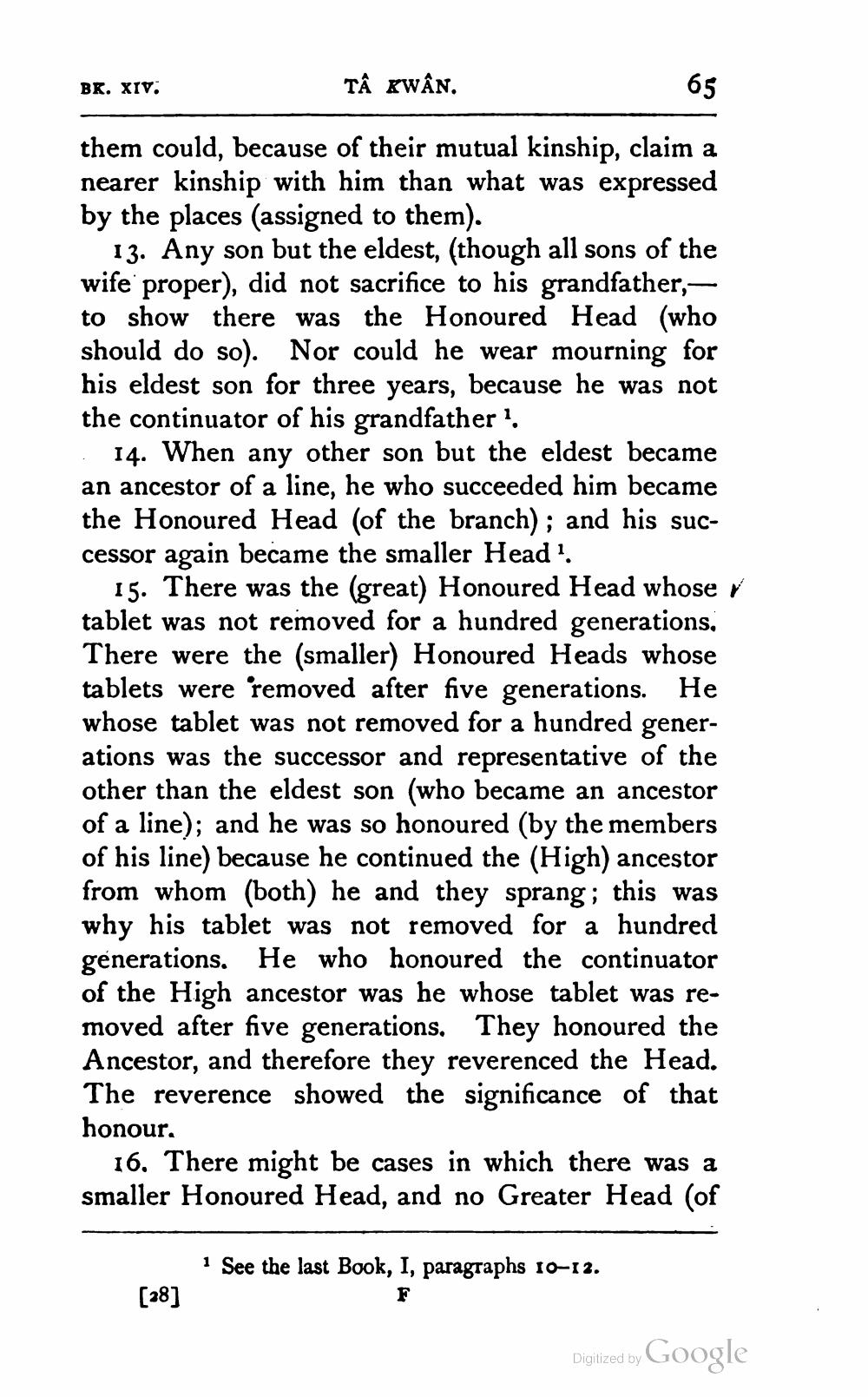________________
TÂ KWÂN.
65
them could, because of their mutual kinship, claim a nearer kinship with him than what was expressed by the places (assigned to them).
13. Any son but the eldest, (though all sons of the wife proper), did not sacrifice to his grandfather,to show there was the Honoured Head (who should do so). Nor could he wear mourning for his eldest son for three years, because he was not the continuator of his grandfather 1.
14. When any other son but the eldest became an ancestor of a line, he who succeeded him became the Honoured Head (of the branch); and his successor again became the smaller Head1.
15. There was the (great) Honoured Head whose tablet was not removed for a hundred generations. There were the (smaller) Honoured Heads whose tablets were removed after five generations. He whose tablet was not removed for a hundred generations was the successor and representative of the other than the eldest son (who became an ancestor of a line); and he was so honoured (by the members of his line) because he continued the (High) ancestor from whom (both) he and they sprang; this was why his tablet was not removed for a hundred generations. He who honoured the continuator of the High ancestor was he whose tablet was removed after five generations. They honoured the Ancestor, and therefore they reverenced the Head. The reverence showed the significance of that honour.
BK. XIV.
16. There might be cases in which there was a smaller Honoured Head, and no Greater Head (of
[28]
1 See the last Book, I, paragraphs 10-12.
F
Digitized by
Google




